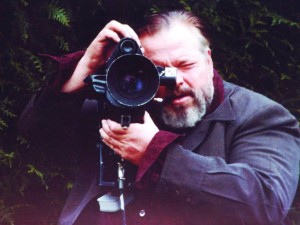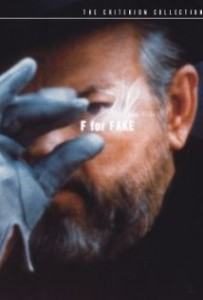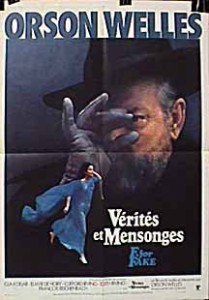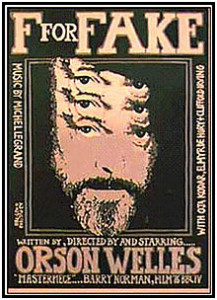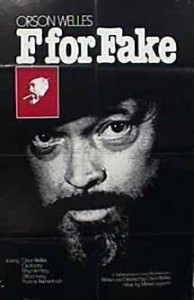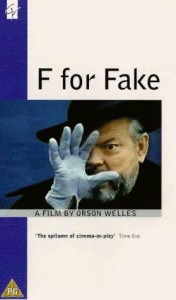F for Fake **** (1973, Orson Welles) – Classic Movie Review 2459
Orson Welles’s entertaining free-form documentary about fraud and fakery sees him reflecting on truth and illusion in an insubstantial and jokey but resourceful and witty artifice that uses a re-edited TV documentary about a famous faker. The teasing, clever film operates in several different genres and is perhaps best described as a kind of film essay
The footage Welles uses is François Reichenbach’s 1968 documentary about the notorious art forger Elmyr de Hory and also about bogus Howard Hughes biographer Clifford Irving, one of the film’s witnesses, who landed himself in jail after writing the celebrated fraudulent Howard Hughes ‘autobiography’.
The old conjurer Welles, performing magic stunts and portraying himself as a ‘charlatan’, looks like a well-fed, contented pussycat as he tricks and twinkles in this likeable farewell to the cinema. For F for Fake (Vérités et mensonges in French, Truths and Lies) is his final major movie as director, apart from his memoir Filming Othello.
It starts from Elmyr de Hory’s recounting of his career as a professional art forger, but his story only serves as the backdrop for Welles’s fast-paced, meandering investigation of the nature of authorship and authenticity, and the value of art.
But F for Fake also deals with the story of reclusive movie mogul Hughes and Welles’s own career, which started with a faked CV and a phony Martian invasion. Welles recalls his younger days of trickery when he conned his way into Dublin’s Abbey Theatre aged 16 and tricked the American radio public with his 1938 broadcast The War of the Worlds.
The film also incorporates Welles’s companion Oja Kodar, who appears and contributed to the script and direction. Welles plays a few tricks of his own on the audience but the main trickery of this film is to make a lot out of little.
In 1976 Welles also shot and edited a self-contained nine-minute short film as a trailer to the 85-minute movie, composed almost entirely of original material not in the film.
The 2005 The Criterion Collection DVD two-disc special edition includes audio commentary by Oja Kodar and Gary Graver, an introduction by Peter Bogdanovich, and the 1995 documentary Orson Welles: One-Man Band.
It is the centenary of the birth of Welles (May 6 1915 – October 10 1985) on 6 May 2015. His Citizen Kane (1941) is consistently ranked as one of the all-time greatest films.
© Derek Winnert 2015 Classic Movie Review 2459
Check out more reviews on http://derekwinnert.com

